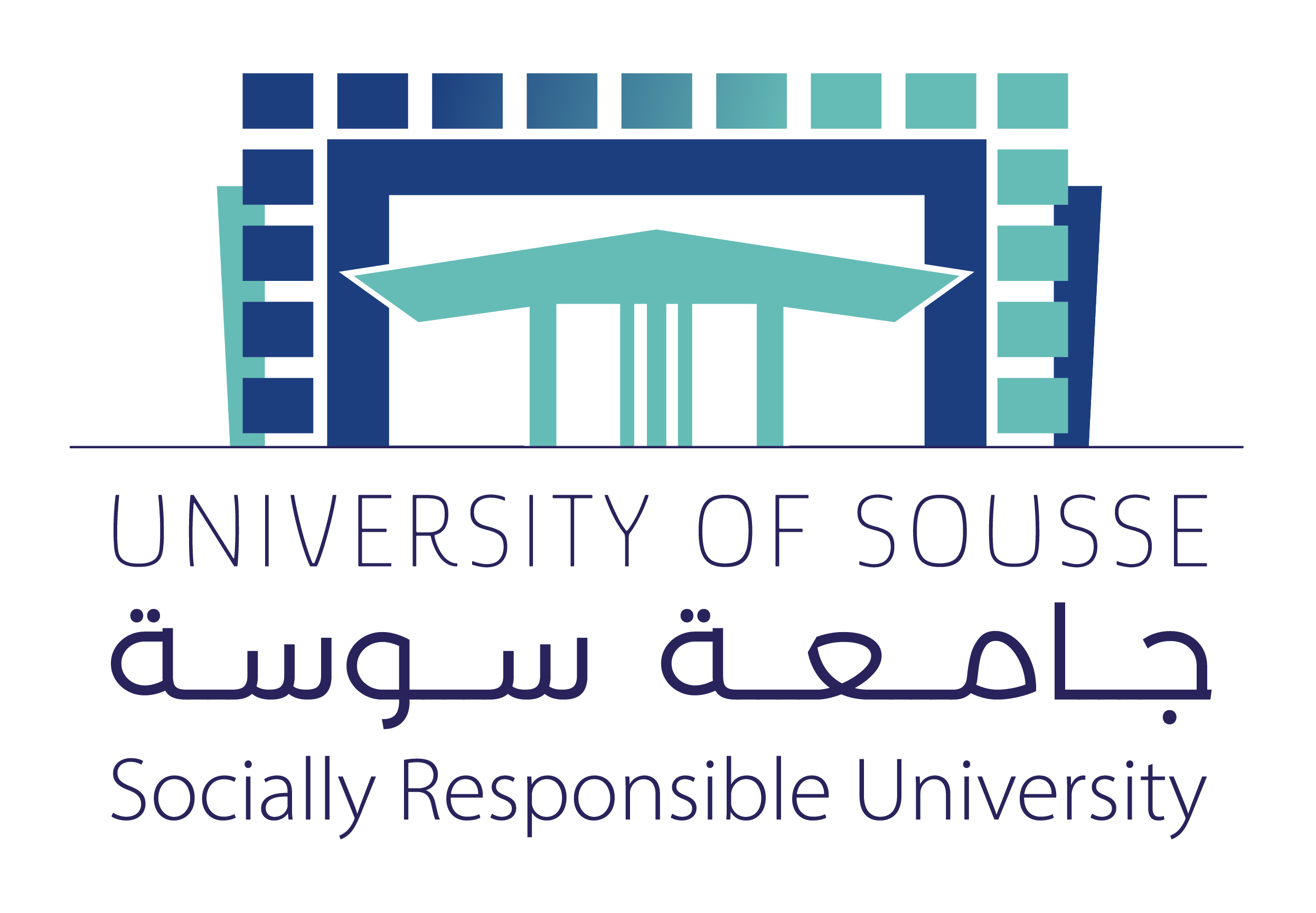Since its creation, ENISo has continued to grow in terms of student numbers, teaching staff, administrative staff, surface area, buildings, sectors, study programs, research laboratories, incubator, career center, innovation space, etc.
Number of teachers : Over the last ten years, the teaching staff has not changed much despite recruitment and this is also due to departures. However, the number of college A teachers (lecturers and professors) has changed significantly to stabilize around 20 over the last three years. This increase is due on the one hand to recent recruitment but also to promotions of ENISo teachers.

Human Resources : Starting with around fifteen people, ENISo has evolved and now has around fifty people, including 19 administrators, 19 workers and 12 technicians.
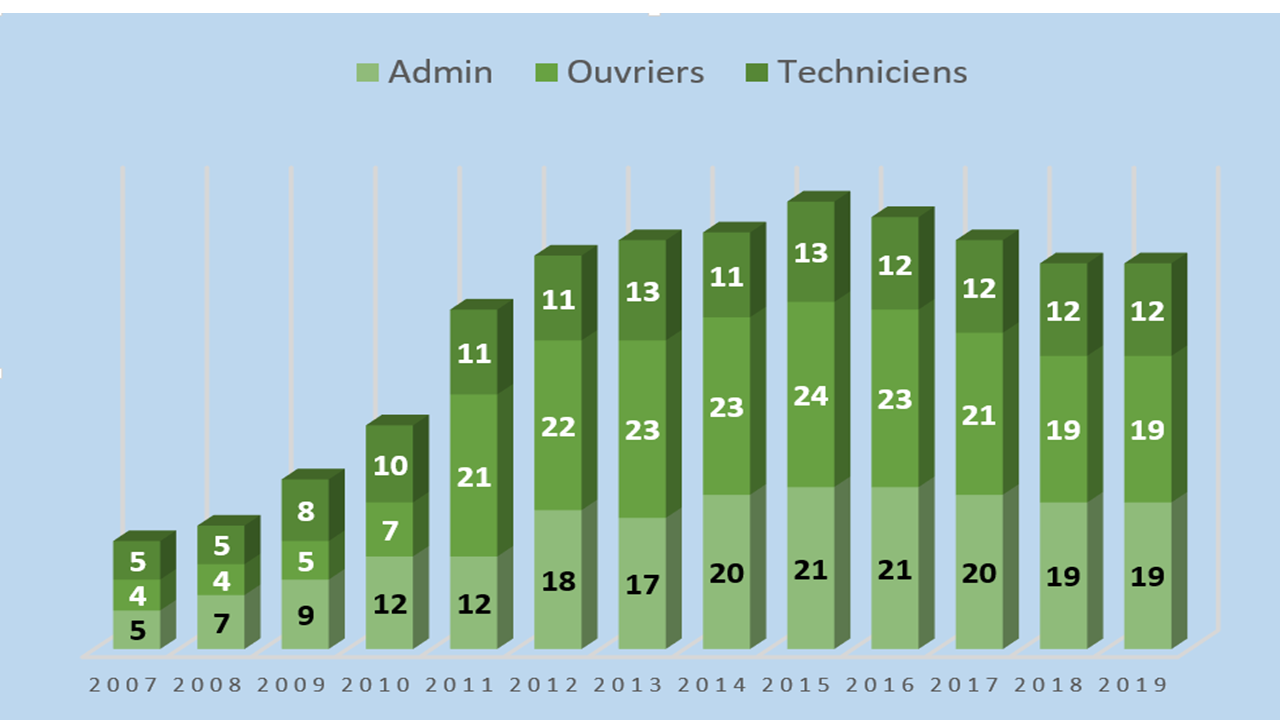
Number of engineering students : In 2005, ENISo started with 150 engineering students. Their number has continued to increase, reaching a peak of 945 students in 2012, the result of massification. This number has relatively stabilized until 2016, to reduce to 564 students in 2019 with a balance between girls and boys.
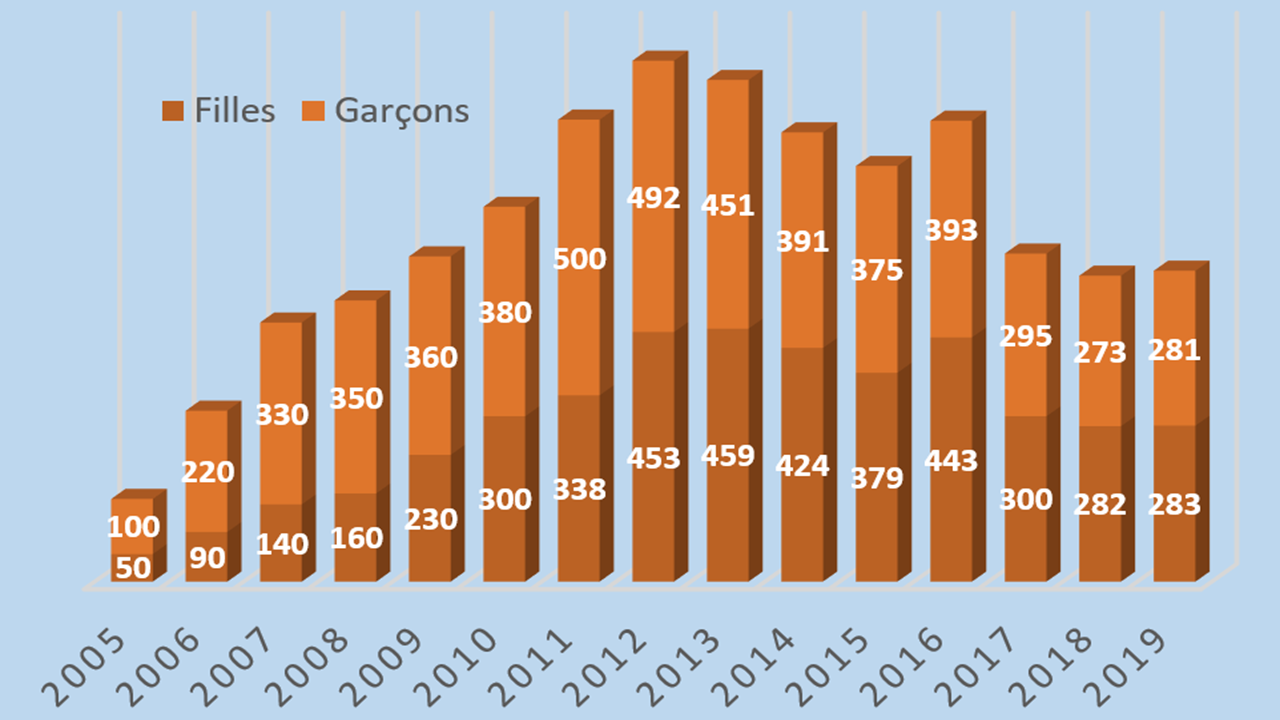
The number of engineering graduates has undergone virtually the same changes with 144 in 2008, a plateau of around 280 graduates between 2013 and 2016 and a decline thereafter to reach 181 graduates in 2019. This drop, although significant in the number of engineering students, is nevertheless beneficial for the quality of training and for supervision.
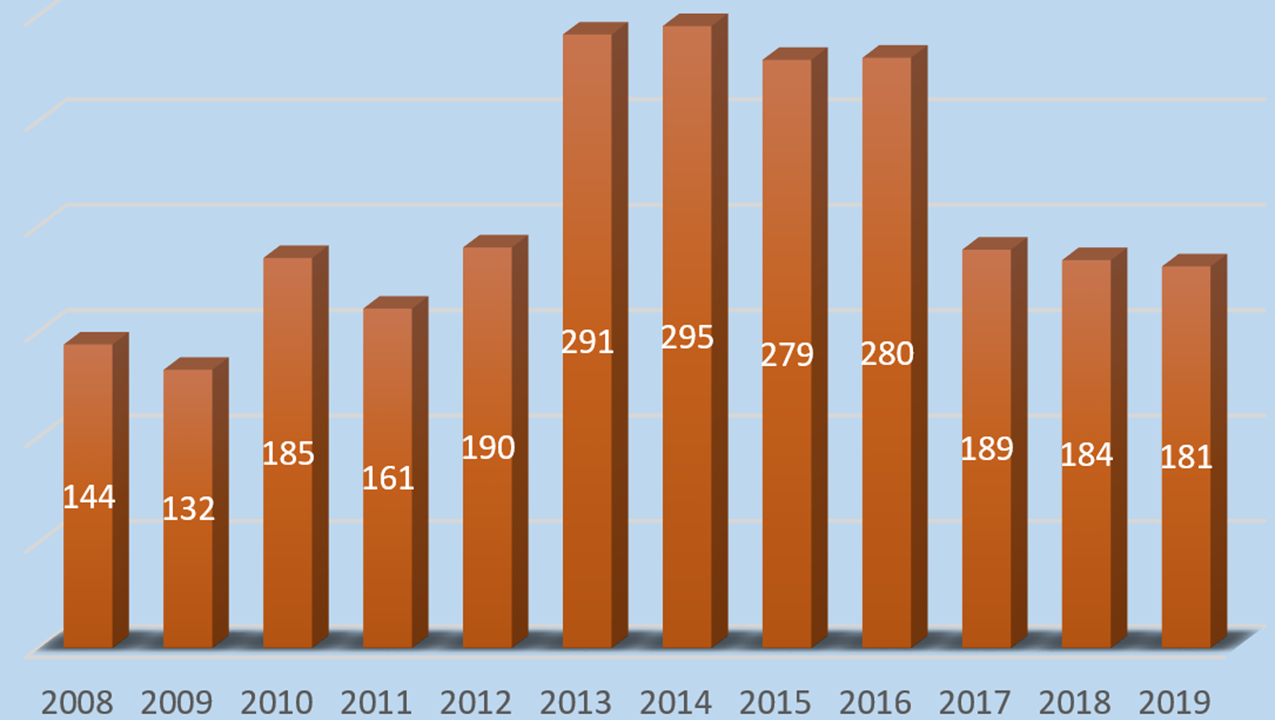
The number of research master's graduates has fluctuated, reaching a peak in 2017, without showing any particular reasons for this development. However, in 2019 we noticed a significant drop in master's graduates, probably due to the job market.
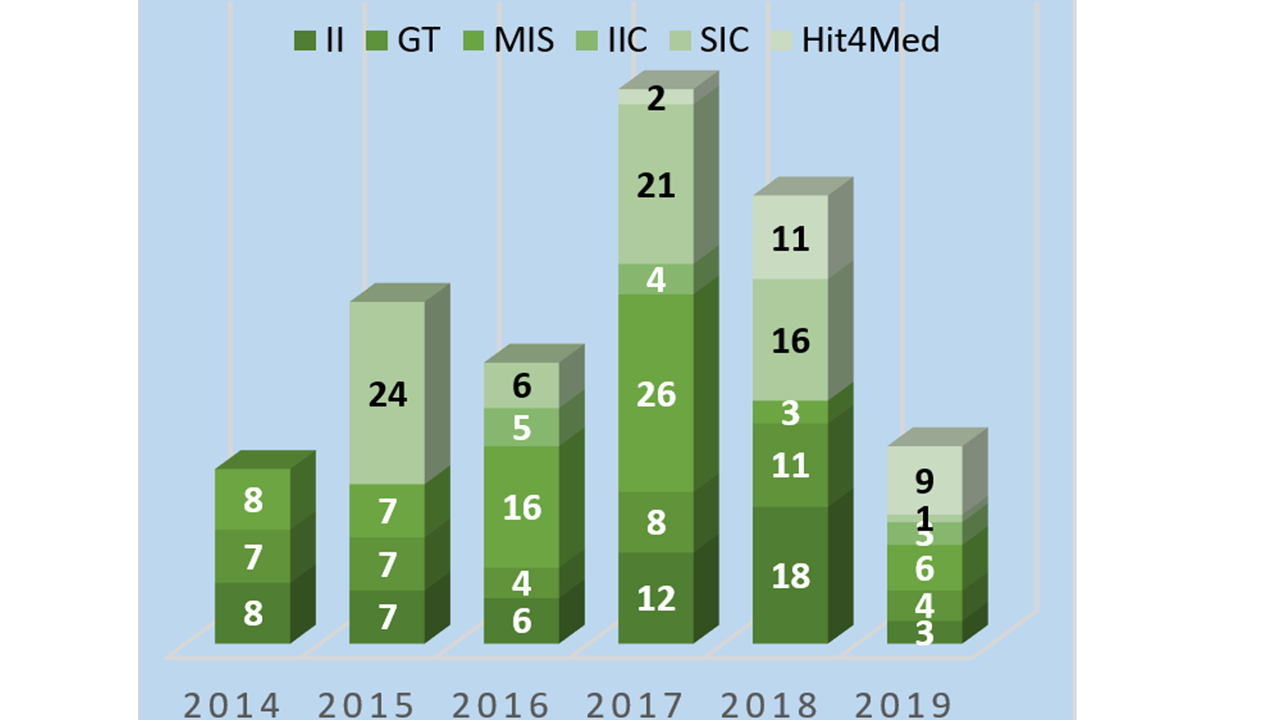
The number of doctoral students graduates increased slightly following the start of the program in 2013 and seems to be stabilizing, but with a slight drop in 2018, which can also be explained by the decrease in the number of applications, particularly in higher education.
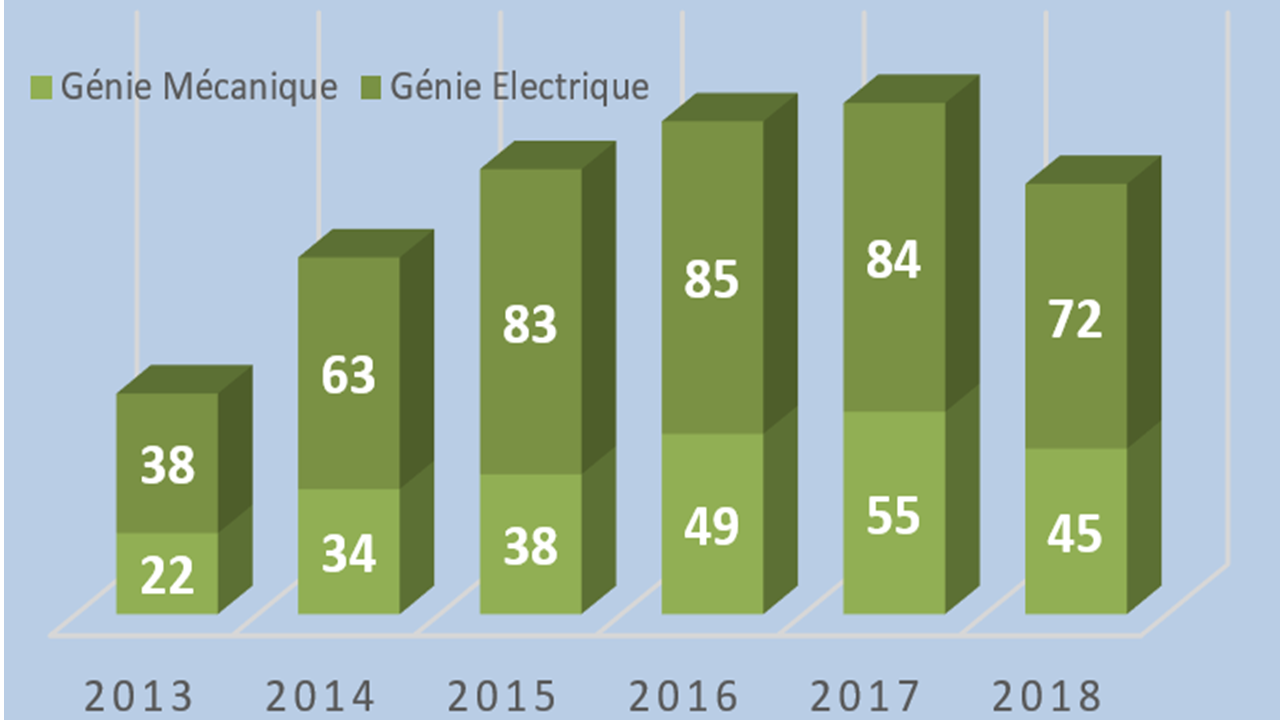
Surface area and buildings: The current ENISo campus covers approximately 10,000 m² including an administrative building with 14 offices, a block A with 4 labs including a language lab, 3 rooms and 6 offices, block B with 8 rooms and 2 language labs, a library with two reading rooms of 100 m² each, a 250-seat lecture hall, a Research block with 38 offices, 3 research labs and 9 rooms. The Industrial Computer Science department is made up of 6 practical work rooms and three offices, the Advanced Mechanics department of 8 practical work rooms and 4 offices, the Industrial Electronics department of 6 practical work rooms and 4 offices. The Mechanical Hall covers 2600 m² and in 2018, an “Open Innovation Space” of 2700 m² was inaugurated while the incubator with its 17 offices will open in 2020

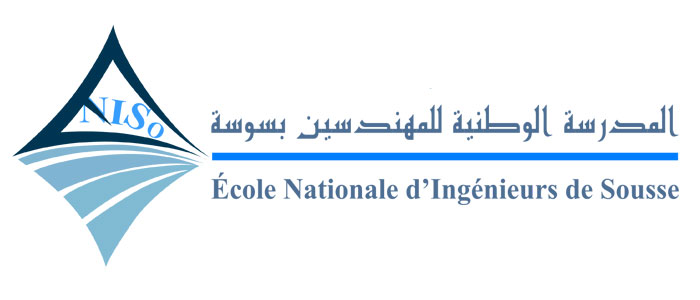
 AR
AR  FR
FR  EN
EN 



